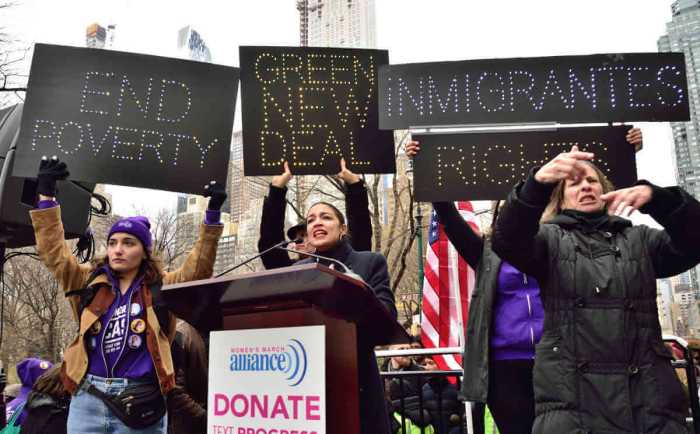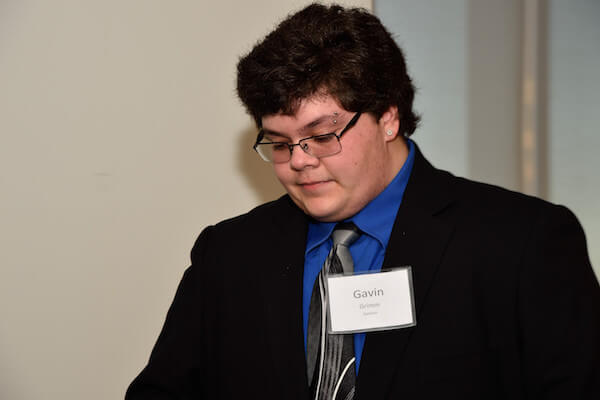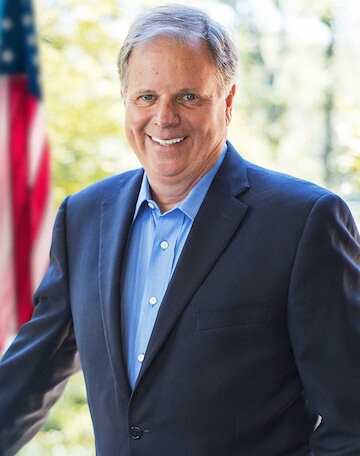The Pride Agenda’s Christopher Argyros testifies at an October 2012 state legislative hearing on GENDA. | GAY CITY NEWS
More than a decade into the effort to approve a transgender civil rights law in New York State, the 2013 legislative session looked like it could be the charm.
Polling touted by the Empire State Pride Agenda, the LGBT community’s Albany lobby group, showed 78 percent of respondents support the measure, the Gender Expression Non-Discrimination Act, or GENDA, which has repeatedly won Assembly passage but never gotten a Senate vote.
Backed by a broad coalition made up of labor, civil rights, and women’s organizations and almost 600 faith leaders –– what one Albany insider described as the sort of group “needed to get anything progressive done” in the Legislature –– EPSA earlier this year launched a media drive worth more than $300,000 targeting specific state senators.
Legislature adjourns and Gender Expression Non-Discrimination Act is still not law
And a long roster of top municipal police chiefs, capped at the 11th hour with an endorsement from New York City Police Commissioner Raymond W. Kelly, pushed back hard against a frequent, but wholly unsubstantiated charge that providing anti-discrimination protections to the transgender community could compromise the safety of women in bathrooms and locker rooms. Noting that the city enacted a transgender rights law 11 years ago, Kelly wrote, “I am not aware of any increase in crimes attributable” to its passage.
In a June 18 press release announcing Kelly’s endorsement for the legislation, ESPA cited “clear momentum” toward success in the Senate. Yet, when the Legislature adjourned in the early morning hours of June 22, the Senate had once again failed to take up the measure.
“We believe we had a bipartisan majority of the Senate to pass the legislation and send it to the governor for his signature,” Nathan M. Schaefer, ESPA’s executive director, said in a written message posted on the group’s website. “We were defeated by the adamant refusal of the Senate leadership to bring the measure to the floor for an up-or-down vote.”
One insider with knowledge of the GENDA push said advocates were confident they had the support of 31 of 33 Democrats –– everyone except Ruben Diaz, Sr., of the Bronx and Simcha Felder of Brooklyn –– and three or four of the 32 Republicans.
The Democrats, however, do not control the Senate. Felder, a freshman, caucuses with the Republicans, and another four Democrats, compromising a rump faction known as the Independent Democratic Conference (IDC), negotiated a power sharing agreement with the GOP that kept Long Island Republican Dean Skelos as the Senate’s most powerful member, despite his party having lost its outright majority in last year’s election.
It has always been unclear if Skelos was willing to ask the full GOP conference to do on GENDA what it did two years ago on marriage equality — allow a floor vote even with most of its members opposed. The bill’s supporters have looked to the IDC –– all of whom have endorsed GENDA –– to help them push the measure, but one advocate, who insisted on anonymity, told Gay City News that when they pressed Diane Savino, an IDC member from Staten Island, on the issue at a recent gathering, she responded, “You’ll have to speak to the governor.”
Governor Andrew Cuomo has long been on record in support of GENDA, but never made the bill a public priority in his legislative agenda. Some transgender rights advocates, mindful of the high profile role the governor played in the success of marriage equality in 2011, have been frustrated by his inaction. But even progressive goals dear to Cuomo’s heart –– such as his women’s equality act and campaign finance reform –– failed to gain traction in the Senate in the session’s final weeks.
“No piece of progressive legislation got that consideration this time around,” one Albany observer said, comparing what Skelos was willing to do on marriage equality to what he asked of his conference on bills at the end of this year’s session.
The offices of Cuomo, Skelos, Savino, and IDC leader Jeffrey Klein, who represents portions of the Bronx and Westchester, have consistently declined to respond to Gay City News’ requests for comment on the prospects for moving GENDA.
ESPA’s Schaefer did not hesitate to fault the IDC, whose members he said his group met with, for failing the transgender community.
“When they announced that they were breaking away from the Democrats, they said they were committed to getting progressive legislation done,” he said. “We were profoundly disappointed that the bill did not get an up or down vote.”
Schaefer noted that even with endorsements from leading law enforcement officials, GENDA advocates were willing to go one step further on the so-called “bathroom issue” with compromise language that essentially stated that anything currently a crime would remain a crime. That concession was made without bargaining away any of the public accommodations protections that transgender civil rights measures in some other jurisdictions have sacrificed, he said.
Asked what it would take to bring the measure across the finish line, Schaefer implicitly returned the conversation to a critique of the IDC’s failure, saying, “We need a leadership configuration that can bring the bill to a vote.”
And he rejected the notion that Cuomo bore any responsibility for the Senate’s inaction. Saying that advocates met “daily with the administration at the highest levels” and that “throughout the process it was very well known that the governor supported the bill,” he said, “This was really an issue of the Legislature.”
Melissa Sklarz, a transgender rights activist who has worked on GENDA for the past decade, said Savino offered her feedback that advocates needed to put “more voices and more faces” in front of the Senate, an assessment Sklarz rejected. As the final hours of the session wound down, Sklarz said, Savino was “too busy” to meet with her, but fellow IDC member David Carlucci of Rockland County told her “he could not understand” why GENDA wasn’t getting a vote.
Schaefer argued that –– given GENDA’s strong polling and the progress made this year on educating senators –– if Senate leadership were willing to step up, there is no reason GENDA could not win approval next year, despite the customary assumption that tough votes are best avoided during an election year.
Sklarz was less upbeat on that score, noting that for the Conservative Party, GENDA is a litmus issue that could spawn primary challenges to Republicans who vote yes. She said that factor made it difficult to get traction on the bill last year, a problem that might recur in 2014.
Several weeks ago, the bill’s lead sponsor, Brooklyn/ Manhattan Democratic Senator Daniel Squadron, told Gay City News, “Let me be clear, the GOP and IDC control the floor.” After the Legislature left Albany, he said, “It is incredibly disappointing that the Senate leadership again refused to bring GENDA to a vote… We've worked to address the concerns raised by senators, yet the bill was still killed in a back room… The Senate leadership's failure to bring GENDA to a vote demonstrates a fear of forcing senators to stand up for or against basic civil rights.”



































